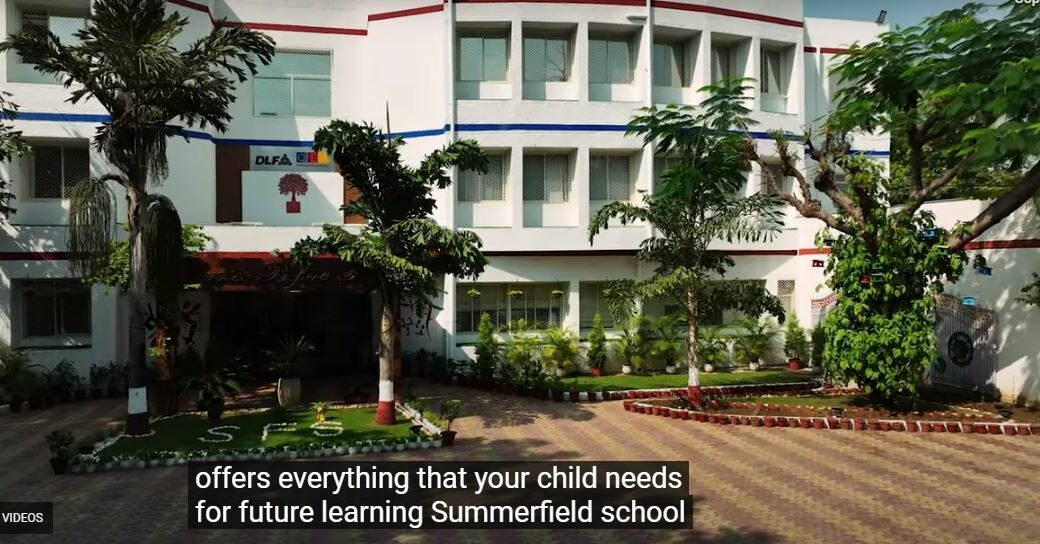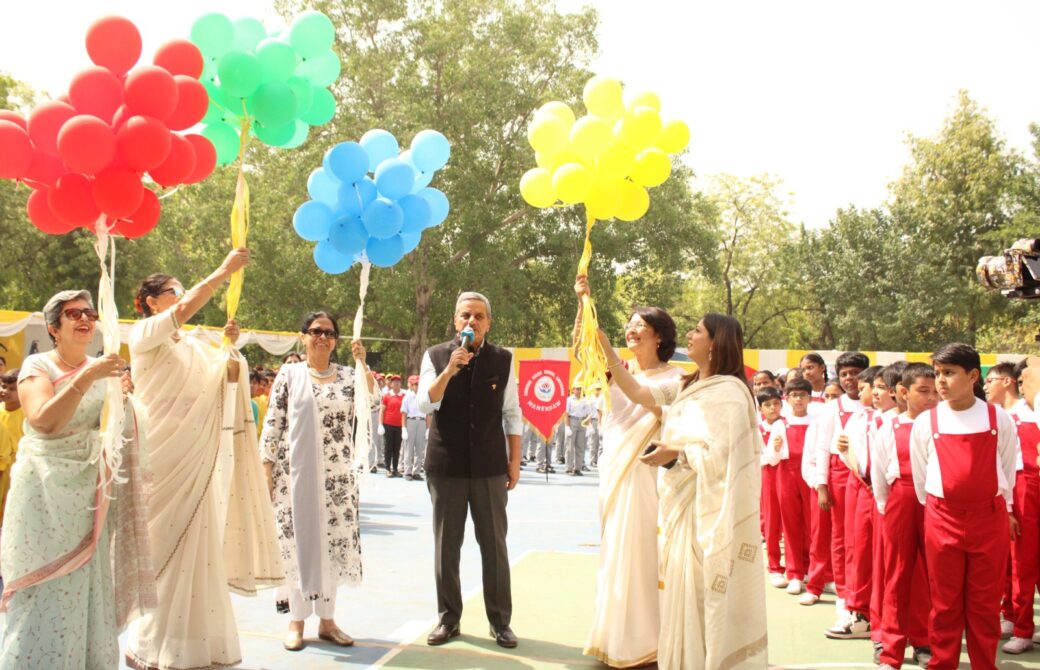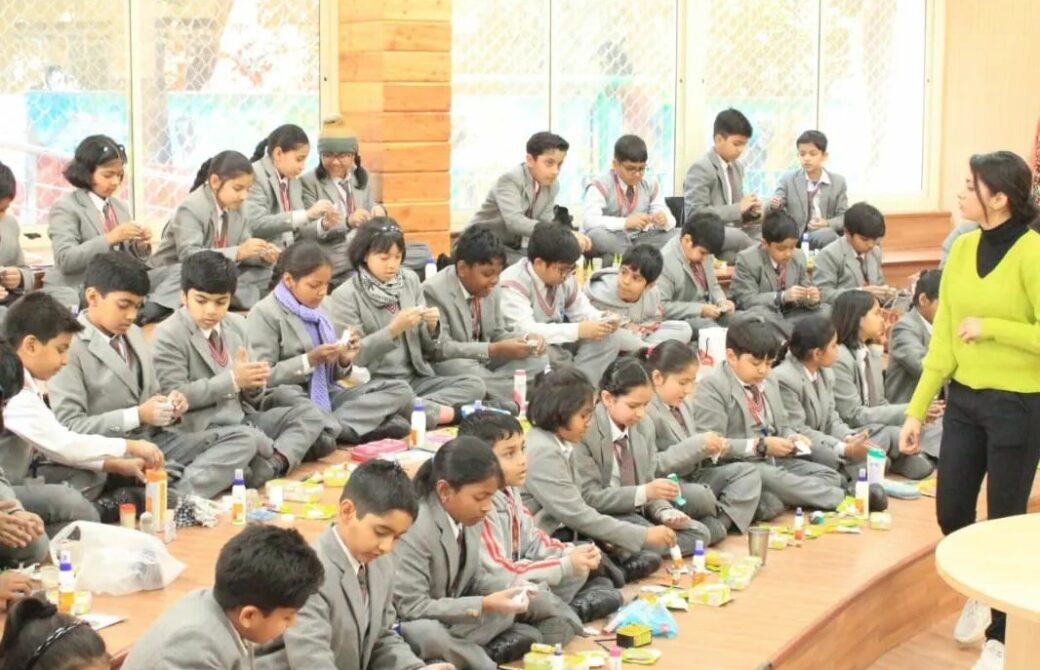Introduction:
In today’s rapidly changing world, the need to equip students with the knowledge, skills, and mindset required for a global future has never been more critical. At Summer Fields, the Top Schools in Gurugram where as globalization continues to break down borders, students must be prepared to engage with diverse cultures, navigate technological advancements, and tackle complex challenges. Schools, particularly those following the CBSE curriculum, are playing a pivotal role in ensuring that their students are not only academically prepared but also equipped with the skills necessary to succeed in an interconnected global society.
This article delves into how schools are preparing students for a global future, highlighting key strategies and practices that are being implemented in schools to nurture future leaders who are well-rounded, adaptable, and capable of thriving in a diverse and dynamic world.
About Us:
At Summer Fields School Gurugram, we are committed to preparing students for a global future by providing a curriculum that emphasizes both academic rigor and global awareness. Our diverse range of programs encourages students to explore different cultures, global issues, and technological advancements, helping them become adaptable and forward-thinking leaders. With opportunities for international exchange programs, global collaborations, and a strong focus on digital literacy, we equip our students with the skills necessary to succeed in an interconnected world. Our emphasis on critical thinking, problem-solving, and innovation ensures that students are well-prepared to navigate the challenges and opportunities of a rapidly evolving global landscape.
Globalization and the Need for a Global Education
Globalization has transformed every aspect of life, from business to culture, and it continues to shape the future of work, politics, and personal relationships. The interconnectedness of economies, cultures, and people requires students to possess a broad understanding of global issues and the ability to adapt to different environments. To prepare students for such a world, educational institutions are focusing on a holistic curriculum that promotes both academic knowledge and personal development.
The rapid pace of technological change, coupled with the increasing demand for cross-cultural communication and collaboration, means that students must be ready to engage with diverse perspectives, embrace change, and possess a global mindset. In light of these developments, schools are shifting from a traditional education model focused primarily on academic subjects to one that prepares students to become global citizens.
Fostering Cultural Awareness and Sensitivity
One of the primary ways schools are preparing students for a global future is by fostering cultural awareness and sensitivity. Understanding and respecting diverse cultures is a key skill in today’s globalized world. Schools are integrating multicultural education into their curricula, which encourages students to learn about different cultures, traditions, languages, and global histories.
This approach helps students understand the complexities of the world around them and fosters empathy and tolerance. Activities such as international exchange programs, virtual collaboration with students from different countries, and exposure to world literature, art, and music help broaden students’ cultural horizons. By learning about and engaging with cultures different from their own, students develop the ability to work effectively in diverse environments, an essential skill for the global workforce.
Developing Communication Skills for a Global Workforce
In an increasingly globalized world, strong communication skills are vital for success. The ability to express ideas clearly, listen actively, and engage with people from different backgrounds is critical in both personal and professional settings. Schools are focusing on enhancing students’ communication skills by incorporating various methods such as debates, group discussions, public speaking activities, and writing exercises.
Additionally, schools are integrating language learning into their curricula. Mastery of global languages, particularly English, Spanish, French, Mandarin, and others, is essential for students who wish to engage in international business, diplomacy, or higher education. Many schools offer bilingual or multilingual programs, allowing students to develop proficiency in languages spoken worldwide. This not only enhances students’ ability to communicate but also opens up opportunities for cross-cultural exchange and collaboration.
Emphasizing Critical Thinking and Problem-Solving
As the world becomes increasingly complex, the need for critical thinking and problem-solving skills has never been greater. Schools are prioritizing the development of these skills by encouraging students to think critically about global issues, analyze situations from multiple perspectives, and devise innovative solutions.
Curriculas that promote inquiry-based learning, where students are encouraged to ask questions, explore ideas, and think independently, are becoming more common. This approach not only develops students’ intellectual abilities but also helps them build the confidence to tackle real-world problems. By engaging in collaborative projects, students learn how to work together, negotiate, and find solutions to problems that have global implications.
Furthermore, schools are integrating technology into the learning process, allowing students to access vast amounts of information and work on projects that require digital literacy and problem-solving. Whether through coding, data analysis, or artificial intelligence projects, technology fosters the development of critical thinking and helps students prepare for careers in fields that will shape the future.
Promoting Global Citizenship and Social Responsibility
A significant part of preparing students for a global future involves nurturing a sense of global citizenship. Students need to understand their role as citizens of the world and the importance of contributing to the common good. Schools are encouraging students to take part in community service projects, environmental initiatives, and social activism, which help instill a sense of responsibility and empathy for others.
By participating in these activities, students learn how to address issues such as climate change, poverty, inequality, and human rights. They also develop the skills necessary to work collaboratively with people from different backgrounds, which is crucial for tackling global challenges. Moreover, through leadership roles in these initiatives, students develop a sense of purpose and gain experience that will serve them well in their future careers.
Embracing Technology and Innovation
The role of technology in preparing students for the future cannot be overstated. Schools are increasingly incorporating digital tools, online learning platforms, and innovative technologies into their teaching practices. This not only helps students become proficient in using technology but also prepares them for future careers in fields like artificial intelligence, robotics, and data science.
In addition to technical skills, schools are teaching students how to use technology responsibly, promoting digital literacy and awareness of issues like online privacy, cyberbullying, and the ethical use of technology. By becoming digitally literate, students are better equipped to navigate the challenges and opportunities that arise in the digital age.
Schools are also introducing coding and computer science courses to help students develop a deeper understanding of how technology works. This empowers students to not only consume technology but also create and innovate, providing them with the tools they need to succeed in a tech-driven world.
Preparing for the Future of Work
The future of work is rapidly evolving, with automation, artificial intelligence, and remote working transforming traditional industries. To ensure students are ready for these changes, schools are focusing on skills that will be essential in the future workforce, including creativity, adaptability, collaboration, and emotional intelligence.
Many schools are offering specialized programs that focus on entrepreneurship, design thinking, and STEM (Science, Technology, Engineering, and Mathematics) education. These programs encourage students to develop a problem-solving mindset, work collaboratively, and apply their knowledge to real-world challenges. By offering career exploration opportunities, internships, and partnerships with industries, schools are helping students understand the skills and competencies required for success in the global job market.
Moreover, schools are helping students understand the importance of lifelong learning. As the nature of work continues to evolve, students must be prepared to adapt, learn new skills, and continuously improve throughout their careers. Schools are encouraging a growth mindset, where students see challenges as opportunities for growth rather than obstacles.
Preparing Students for Global Higher Education
In addition to preparing students for the workforce, schools are also ensuring that students are ready for global higher education. With increasing numbers of students pursuing studies abroad, schools are providing guidance on the admission process, scholarship opportunities, and preparing for standardized tests like the SAT, GRE, and IELTS.
Schools are also offering advanced placement courses and international curriculum options, such as the International Baccalaureate (IB) program, which are recognized worldwide. These programs challenge students to think critically, develop research skills, and engage with global issues, making them well-prepared for higher education in a global context.
Conclusion:
As the world becomes more interconnected, it is essential that schools equip students with the knowledge, skills, and values necessary to thrive in a global future. At Summer Fields, the Best Schools in Gurugram where thruough a balanced curriculum that emphasizes cultural awareness, critical thinking, communication skills, and social responsibility, schools are preparing students to be informed, empathetic, and proactive global citizens. By embracing technology, fostering creativity, and promoting global citizenship, schools are ensuring that their students are not only prepared for the challenges of the future but also empowered to shape a better world. In doing so, they are nurturing the leaders of tomorrow, ready to tackle the complex issues that will define the global future.







